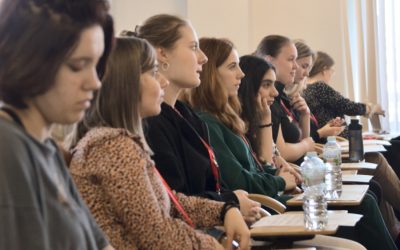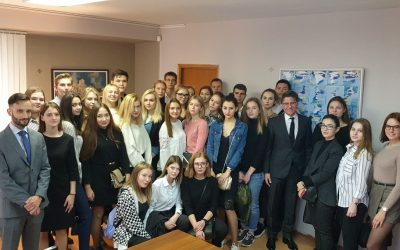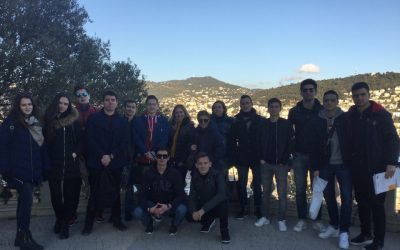Description
The content of the major12.00.02 “Constitutional law; constitutional litigation; municipal law” is constitutional and municipal legal notions, categories, concepts and institutions that characterize the essential features and characteristics of constitutional law, constitutional litigation, municipal law in the Russian Federation and in foreign countries, their sources and conditions, legality in this area.
Areas of research
1. Constitutional law
1.1. Subject, forms, and methods of constitutional regulation of public relations. Constitutional and legal relations and their subjects.
1.2. Constitutional and legal norms, their features and types. Sources of constitutional law.
1.3. Institutions and system of constitutional law.
1.4. Science of constitutional law: system, sources, role in solving problems of strengthening and developing Russian statehood, theory and practice of constitutionalism.
1.5. Responsibility in constitutional law: grounds, subjects, procedural forms of application, sanctions.
1.6. The theory of the basic law (constitution) in constitutional law.
1.7. The theory of human rights and freedoms in constitutional law. The limits of the realization of human and civil rights and freedoms. Constitutional and legal regulation of restrictions on human and civil rights and freedoms.
1.8. Citizenship of the Russian Federation. Legal status of foreign citizens, stateless persons.
1.9. Fundamentals of the constitutional system of the Russian Federation and foreign countries.
1.10 The federal structure of Russia. Constitutional and legal foundations of national and regional policy in the Russian Federation.
1.11. Guarantees of the rights of national minorities.
1.12. The status of small indigenous peoples.
1.13. Territorial organization of public authority.
1.14. The constitutional and legal status of civil society institutions.
1.15. Constitutional guarantees and mechanisms for their implementation.
1.16. The place of constitutional legislation in the system of legislation of the Russian Federation.
1.17. Correlation between federal constitutional legislation and constitutional (statutory) legislation of the constituent entities of the Russian Federation.
1.18. Constitutional legislation of foreign countries.
1.19. The system of the relationship between constitutional law and municipal law.
1.20. Suffrage, electoral systems, and electoral process in the Russian Federation and in foreign countries.
1.21. The head of state, parliament, government in the system of separation of powers.
1.22. Bodies of constitutional control and constitutional justice, their functions, powers, forms and methods of activity. Constitutional bodies of state power with a special status (the Accounts Chamber of the Russian Federation, the Central Bank of the Russian Federation, the Prosecutor’s Office of the Russian Federation, the Commissioner for Human Rights in the Russian Federation).
1.23. Government agencies that are not government authorities. Constitutional and legal regulation of their status.
1.24. The system of public authorities of the constituent entity of the Russian Federation. Implementation of the principle of separation of powers at the level of a constituent entity of the Russian Federation.
1.25. Local government in the system of public authority.
2. Constitutional litigation
2.1. The content, subject and purpose of the constitutional litigation. Correlation of constitutional law and constitutional litigation.
2.2. Sources and legal relationships in the constitutional litigation.
2.3. Constitutional and judicial procedural form. Features of constitutional legal proceedings in foreign countries.
2.4. Principles of constitutional proceedings.
2.5. Participants in the constitutional litigation.
2.6. Terms in constitutional proceedings.
2.7. Proof and evidence in constitutional proceedings.
2.8. Costs and fines in constitutional proceedings.
2.9. Stages of the constitutional litigation.
2.10. Subordination of cases to the Constitutional Court of the Russian Federation, to constitutional (charter) courts of the constituent entities of the Russian Federation and the procedure for their consideration.
2.11. Acts of the Constitutional Court of the Russian Federation, constitutional (charter) courts of the constituent entities of the Russian Federation.
2.12. Correlation of constitutional litigation with procedural branches of law.
2.13. Constitutional trial in the Russian Federation and international law.
3. Municipal law
3.1. Subject and methods of municipal legal regulation.
3.2. Municipal legal relations and their subjects.
3.3. Institutions and system of municipal law, its place in the system of Russian law.
3.4. Norms and sources of municipal law. Municipal lawmaking. System of municipal legal acts.
3.5. Municipal law as a branch of scientific knowledge: subject, sources, place in the system of legal sciences.
3.6. Historical, theoretical, and ideological foundations of local government.
3.7. General principles of organization of local government in the Russian Federation: content, classification, legal regulation.
3.8. Forms of direct implementation of local governance by the population and its participation in the implementation of local governance.
3.9. Forms of inter-municipal cooperation.
3.10. Territorial organization of local government.
3.11. Subjects of jurisdiction and powers of local government.
3.12. The structure and organization of the functioning of local government bodies. Municipal service.
3.13. Responsibility of local government bodies and local government officials. Control and supervision of their activities.
3.14. Local government guarantees.
3.15. Local government and self-government in foreign countries.
Competences and advantages
Constitutional law occupies a central place in the system of branches of Russian law. It defines:
- fundamental values of the state and social system,
- institutions of democracy,
- fundamental human and civil rights and freedoms,
- organization of state power, and
- principles guiding the content, development, and application of all branches of Russian law.








